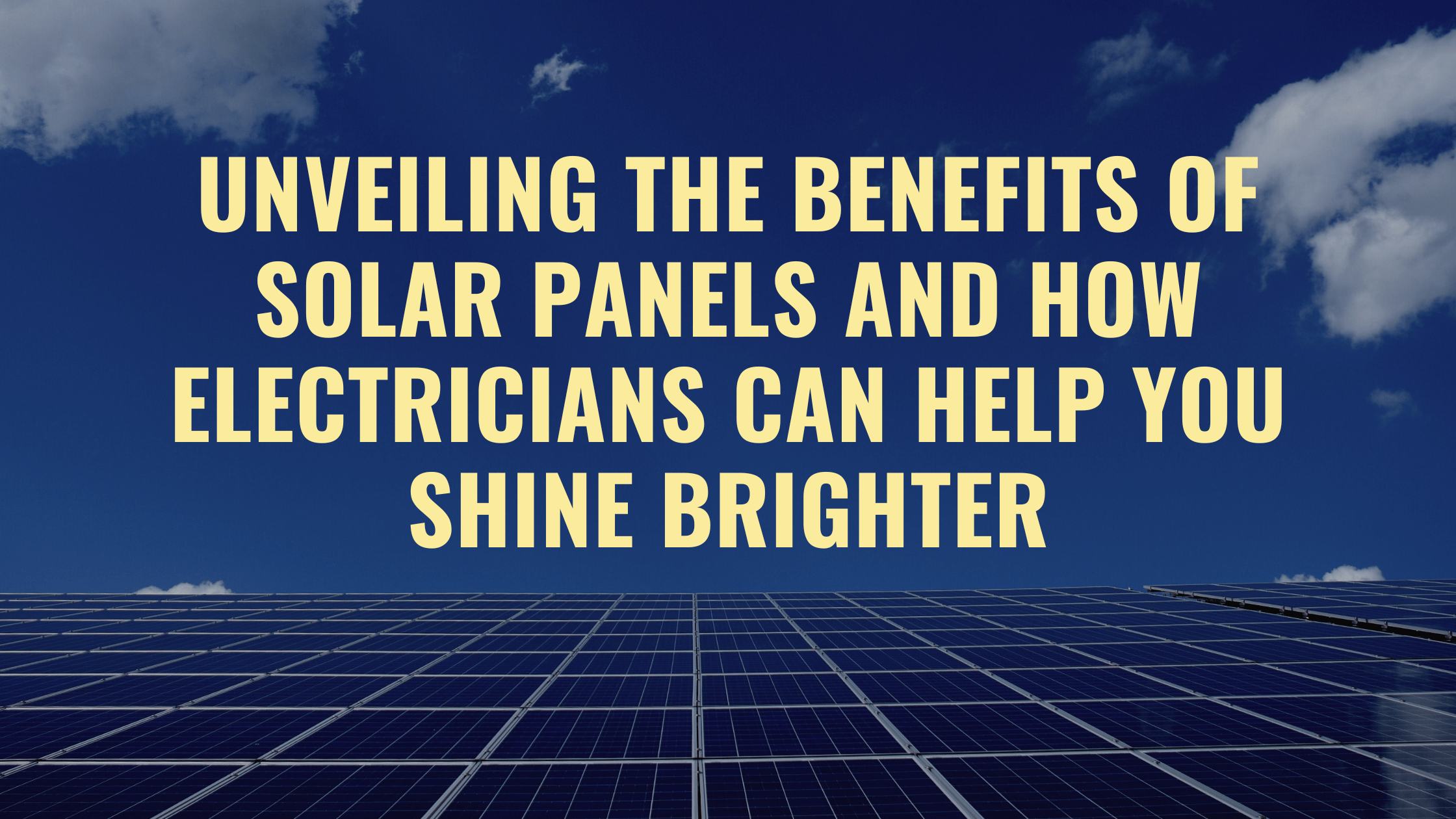Simply Solar Illinois: Full Solar Solutions for Sustainable Living
Simply Solar Illinois: Full Solar Solutions for Sustainable Living
Blog Article
Exactly How Solar Power Can Help You Save Money and Minimize Your Carbon Footprint
The integration of solar power into your power profile presents a compelling opportunity for both monetary savings and environmental stewardship. By using the sun's power, property owners can significantly decrease their monthly energy costs while additionally protecting versus the unpredictability of future energy costs. The transition to solar contributes to a significant decrease in carbon discharges, aligning individual financing with wider ecological objectives. As numerous government rewards become readily available, the inquiry arises: exactly how can one properly navigate the preliminary investments and ongoing advantages of solar innovation to optimize both economic and ecological gains?
Recognizing Solar Power Cost Savings
While the shift to solar power usually involves an initial financial investment, recognizing solar power financial savings is crucial for homeowners and companies alike. Solar energy systems can considerably reduce electricity bills by taking advantage of the sun's power, equating right into substantial long-term economic benefits.
Additionally, solar energy systems may get approved for numerous monetary motivations, consisting of tax credit reports and discounts, better improving their cost-effectiveness. The schedule of internet metering allows users to offer excess power back to the grid, creating an added income stream. These factors contribute to the general cost savings related to solar power.

Along with guide monetary cost savings, solar power uses the included advantage of enhancing residential or commercial property worth. Homes equipped with photovoltaic panels are commonly more eye-catching to buyers, as they assure reduced power costs - Simply Solar Illinois. Understanding these aspects is essential for anybody considering solar power, as it highlights not just the prospective financial gains, however also the broader ecological and financial benefits of adopting renewable resource options
Initial Costs vs. Long-Term Conveniences
When evaluating solar energy, it is very important to weigh the initial costs versus the long-lasting advantages. The ahead of time financial investment for photovoltaic panels, installment, and relevant tools can be significant, typically ranging from $15,000 to $30,000, depending upon the system size and home power needs. This initial expenditure might deter some home owners; nevertheless, it is crucial to consider the potential savings with time.
When installed, solar energy systems can dramatically lower or even eliminate month-to-month electrical power expenses, causing significant long-lasting monetary advantages. Research studies suggest that house owners can save anywhere from $10,000 to $30,000 over the lifespan of their solar system, typically 25 years. Additionally, many states offer motivations, tax obligation credit histories, and discounts that can offset preliminary costs, making solar a lot more accessible.

Lowering Your Carbon Footprint
Minimizing your carbon footprint is a crucial factor to consider in today's eco aware culture, and taking on solar energy is among one of the most efficient techniques to achieve this objective. Solar power is a clean, renewable source that considerably decreases dependence on nonrenewable fuel sources, which are major factors to greenhouse gas emissions.

Furthermore, the prevalent adoption of solar innovation urges the development of green tasks and supports innovations in energy storage space and efficiency. The even more people and organizations spend in solar energy, the higher the cumulative reduction in carbon discharges, promoting a cleaner atmosphere for future generations.
Government Incentives and Rebates
Embracing solar energy not just benefits the atmosphere however can likewise result in substantial financial savings, especially with the schedule of government incentives and rebates. Different federal, state, and neighborhood programs are developed to motivate home owners and organizations to buy solar energy systems, making the transition extra affordable.
One of one of the most famous motivations is the Federal Investment Tax Obligation Credit Rating (ITC), which allows solar system owners to subtract a substantial portion of the setup costs from their government taxes. This incentive has actually been crucial in lowering the ahead of time expenditures connected with solar power systems. Furthermore, lots of states provide their own tax obligation credit scores, gives, and refunds that can even more improve financial savings.
Additionally, some local governments provide home tax obligation exceptions for solar installments, ensuring that house owners do not deal with increased real estate tax as a result of their renewable resource investments. Energy firms might additionally provide motivations, including net metering and feed-in tolls, which enable solar power individuals to sell excess power back to the grid.
Picking the Right Planetary System
Selecting the suitable planetary system is vital for maximizing power efficiency and monetary benefits. The decision rests on several variables, including power requirements, budget plan, and available area. Home owners ought to begin by examining you can check here their power intake to determine the system size required for ideal efficiency.
Next, consider the various sorts of solar modern technologies offered. Simply Solar Illinois. Solar (PV) panels are the most typical, converting sunshine directly into electrical energy, while solar thermal systems concentrate on heating water. Each type has distinct benefits relying on specific needs
Spending plan factors to consider are also paramount. Preliminary setup expenses can vary dramatically, so it is very important to contrast quotes from several service providers and discover funding alternatives. Federal government incentives and discounts can additionally decrease the financial burden, making solar systems extra obtainable.
Conclusion
The environmental benefits of solar energy contribute to sustainable techniques crucial for combating climate change. Federal government motivations enhance the feasibility of solar innovation adoption, encouraging a change in the direction of a this contact form cleaner, extra financially efficient energy source.
Report this page